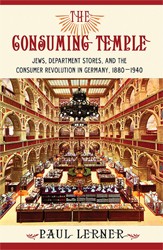Rebecca Schuman’s new memoir, Schadenfreude, A Love Story, which boasts possibly the longest subtitle I have ever seen on a book cover (Me, the Germans, and 20 Years of Attempted Transformations, Unfortunate Miscommunications, and Humiliating Situations That Only They Have Words For) is a funny book. Hilarious, even: it actually made me snort with laughter, which one might expect from reading a humorist, but not necessarily a memoirist.
It is not surprising that Schuman is a columnist at Slate, the online magazine known for its witty, irreverent angle. This is her first book.
Rebecca is, as she puts it, “selectively Jewish” (by which she means that her father is Jewish, but also that she is Jewish when it is useful or interesting) and this, predictably, makes for amusing collisions with the subject of her obsession: German culture and literature (but mostly Kafka, even though, she is constantly told, Kafka himself was not German but Czech Jewish). She decides to mine her host family for guilt about the Holocaust; she wonders about her host father’s collection of Nazi coins. She is brought to this obsession, which ultimately shapes her education and her career, in the first place by another kind of obsession: a romantic fixation with a male classmate. It’s rare to read an account of high school romance that captures its intensity without an ounce of cliché or mawkishness, but Schuman has done it here.
The narrative is vivid and rollicking; Schuman brings you along for the ride. She renders her quirky teenage and then twenty-something self, and the nineties world in which she came of age, in full color, employing an energetic prose style and a blunt, self-deprecating yet confident voice that is unforgettable. Indeed, sometimes the utter voicey-ness is grating. Schuman has certain narrative tics, such as the gimmick she uses to convey the challenges of language immersion, expressing half-understood bits of German dialogue in a bare-bones format, with the parts of speech she assumes make sense in the sentence in brackets, like so: “You [adjective] want to [verb]”. At first, that was amusing; after the twentieth time, it became tiresome. Nevertheless, Schadenfreude is as accurate a take on the idiosyncrasies of academia, obsession, and academic obsession as any I have ever read. And it is certainly the funniest. Those who have fallen in love with an academic discipline, attended a liberal arts college, studied abroad, or attempted to navigate the landscape of graduate school will almost certainly find resonances of their own experiences here.
Schuman conveys with razor-sharp acuity what it is like to live in an esoteric corner of one’s own mind, while also trying to live in the world – but the result is anything but esoteric, and that is a triumph.
Miranda Cooper is a NYC-based writer, editor, and literary translator. Her literary criticism, essays, and translations of Yiddish fiction and poetry have appeared in a number of publications including Jewish Currents, Kirkus Reviews, the Los Angeles Review, Pakn Treger, and more. In 2019, she was named an Emerging Critic by the National Book Critics Circle. She is also an editor at In geveb: A Journal of Yiddish Studies.




